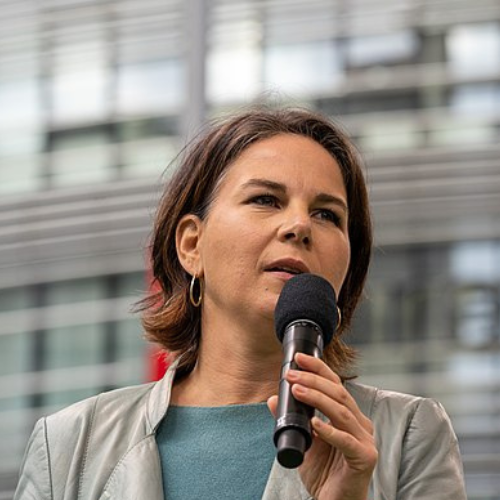In a significant move with potential wide-ranging geopolitical repercussions, German Foreign Minister Annalena Baerbock has initiated a formal request for the European Union (EU) to impose sanctions on the Iranian Revolutionary Guard Corps (IRGC), commonly known as the Pasdaran. This strategic initiative is supported by several EU member states and is based on existing sanctions frameworks established in response to the September 11, 2001, attacks in the United States. The German newspaper “Sueddeutsche Zeitung” first reported on this development, highlighting its importance and potential impact on EU-Iran relations.
Background and Legal Foundations of Sanctions
The German Foreign Ministry’s request to the EU draws heavily on a recent legal ruling from Germany’s Higher Regional Court of Düsseldorf. In December 2023, the court sentenced a German Iranian individual to two years and nine months in prison for attempting to set fire to a synagogue in Bochum in November 2022. The court’s findings indicated that Iranian government authorities were behind the attack, providing a legal basis for Germany’s push to sanction the Pasdaran.
This case has highlighted the perceived threat posed by the Pasdaran, not only within Iran but also on European soil. The Pasdaran, an elite military unit with substantial political and economic power in Iran, has been implicated in various controversial activities, including supporting militant groups and engaging in acts of terrorism.
Diplomatic Maneuvering and Confidential Discussions
The initiative by Baerbock was officially communicated to her colleagues at the Foreign Affairs Council meeting held on June 24 in Luxembourg. However, the details of the discussions remain confidential. An EU spokeswoman, when questioned by “Sueddeutsche Zeitung”, stated that the discussions within the Council were “internal and confidential,” thus refraining from further public comment.
This level of confidentiality emphasizes the sensitivity and potential ramifications of the proposal. Sanctioning the Pasdaran could strain relations between the EU and Iran, which are already fraught with tensions over Iran’s nuclear program and human rights record.
Support and Opposition within the EU for Pasdaran Sanctions
Baerbock’s move has garnered support from several EU member states, reflecting a growing consensus on the need to address the Pasdaran’s actions. However, the proposal does face certain challenges. The EU operates on a consensus basis for foreign policy decisions, meaning all member states must agree on the imposition of sanctions. Some countries may be hesitant to take such a step, fearing economic repercussions or further destabilization in the Middle East.
The German Foreign Ministry’s approach indicates a calculated risk, weighing the benefits of taking a firm stance against the Pasdaran against the potential diplomatic fallout. The ministry believes that the legal precedent set by the Düsseldorf court provides a robust justification for the sanctions.
Broader Geopolitical Implications of Sanctioning the Pasdaran
If the EU decides to move forward with the sanctions, it could mark a significant shift in its policy towards Iran. The Pasdaran plays a crucial role in Iran’s internal and external affairs and targeting it with sanctions could limit its operational capabilities and financial resources. This could, in turn, weaken Iran’s influence in the region and its ability to support proxy groups.
On the other hand, Iran is likely to view such sanctions as an escalation, potentially retaliating against European interests. This could further complicate efforts to revive the Joint Comprehensive Plan of Action (JCPOA), commonly known as the Iran nuclear deal, which has been in limbo since the United States withdrew from it in 2018.
The push by German Foreign Minister Annalena Baerbock to impose EU sanctions on the Pasdaran represents a significant development in international relations. It highlights the ongoing concerns about the Pasdaran’s activities and the willingness of European nations to take a stand against perceived threats to their security. As the EU deliberates on this proposal, the outcome will be closely watched, not only by those directly involved but also by global stakeholders interested in the stability and security of the Middle East.
In the coming months, the EU’s decision on this matter will be a crucial indicator of its approach to dealing with Iran and its broader strategy for ensuring regional and international security.



